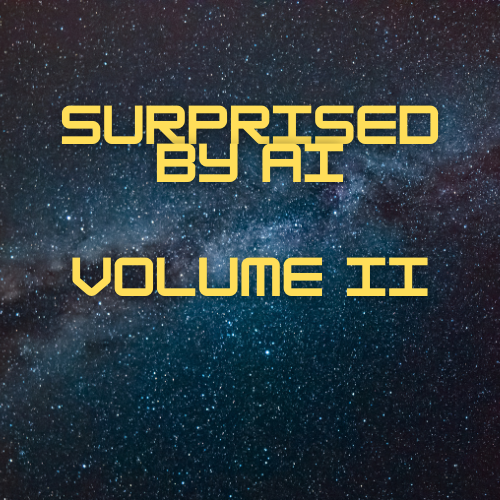Our previous newsletter in the “Surprised by AI” series delved into some of the unexpected fields where AI has been put to work. But applications of Artificial Intelligence are not all work and no play! Even robots are learning new skills these days! This issue of the Dataspace newsletter highlights some of the (maybe) surprising ways that AI is enriching our enrichment activities.
The Great American Pastime – Lawsuits!
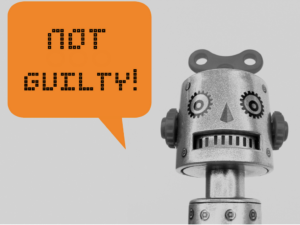
Are you bored? Irritated that you’ve already watched every single show available to stream online? Suffering from End-of-Summer Syndrome? It’s probably someone else’s fault, and you can sue them! While the legal field has been one of the slowest to start engaging with advanced analytics, AI is finally making inroads to help lawyers collect and understand the data that they need to succeed. There is certainly a strong case for lawyers to become comfortable enough with the field of technology and analytics in order to be the best advocates for their clients – having access to the use of analytics to support their position, as well as knowing when to be skeptical of statistical/predictive evidence.
Whiskey for My Men, Beer for My… Bots?
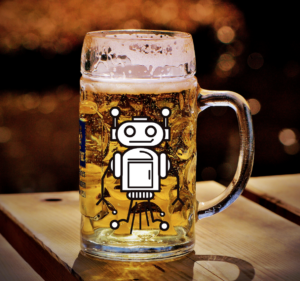
People around the world are reporting an increase in their alcohol consumption over the past several months. While I have not uncovered any documentation on robot binge drinking during the pandemic, Oregon-based Deschutes Brewery is using AI to help maximize their production as well as free up space and time for experimenting with crafting new brews. AI assisted brewing is gaining traction across the globe, and there is even an example of AI being able to be trained off of consumer feedback in order to make improvements to the brews it is managing!
Digital Love
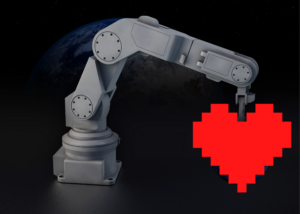
Since “Stay at Home” orders and social distancing have made it hard to meet other humans in person, swiping, scrolling, and clicking through online dating apps has become a leisure activity for many. AI has its place in this sphere of our personal lives as well – with dating sites using AI to help improve the experience of their users, and multiple examples of clever programmers who have tested out AI as a means to improve their likelihood of getting matches and starting/maintaining conversations. The trend towards online dating has also prompted researchers to investigate what components make a dating algorithm work (or how it doesn’t work), as well as pondering what “success” means in this particular context.
Finally, an Algorithm to Improve My “Skills of an Artist“
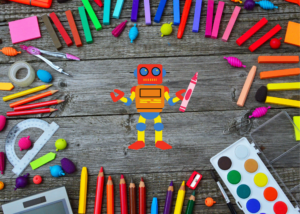
Not only is AI making a contribution to current popular enrichment activities, but it is also playing a role in unlocking the mysteries of ancient cultures. Google Arts and Culture is developing Fabricius – a machine learning tool to help translate ancient Egyptian hieroglyphics! Their website includes several cool interactive experiences both for work and for play!
Feeling like you want to make your own art but need some direction? AI can help with that too! Introducing BOTOBER (Bot October) by AI Weirdness – an algorithm that has generated some great suggestions for things, concepts, and overall ridiculousness that you can attempt to draw. My interpretation of today’s prompt (“The point of view of a worm”) is included here, with sincere apologies:

(For the record, those are bird legs..)
Ben’s Take
OK, unless you have some time to spend, I recommend not opening Katie’s first Google Fabricius link. It’s super cool! Not sure how she’s managing to do it but we’re getting more and more compliments on her newsletters. Great work, Katie!
This month I wanted to add a few links of my own, these focused on uses of data visualization for tracking coronavirus and Covid 19 spread. The first was sent to me by Mohan Kartha, a buddy here in Ann Arbor and one of the strongest, most well rounded technologists I know. This dashboard, Global Covid-19 Tracker, integrates data sets from around the world and presents that data in a number of interactive presentations. It’s worth looking at, even if just to get some ideas on things you might add into your own dashboards.
The second link is in more of a report format than pure dashboard and was built using a tool called Observable. This one, put together by Ann Arbor-based data scientist Alex Cao, focuses solely on Michigan data but provides insights in a different format. It also does a really good job of detailing the pandemic’s effect on minorities.

